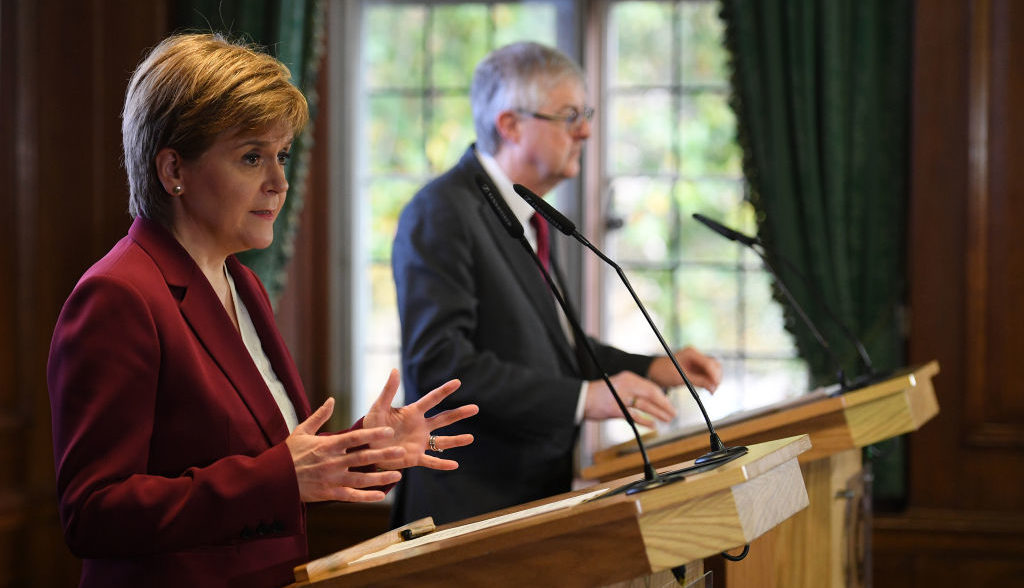You’ve got to credit him with persistence: yesterday’s papers reported that Michael Gove seems again to be trying to cobble together a ‘four nations’ approach to combating the pandemic.
It doesn’t seem much more likely to succeed than previous efforts. Indeed, Nicola Sturgeon has already struck out on a tougher line than Boris Johnson, reintroducing limits on household mixing in Scotland.
She has accompanied this with a letter to the Prime Minister demanding more UK cash to support affected businesses north of the border.
Covid-19 has cast a cold light on how New Labour’s devolution project has damaged this country’s capacity to mount a coherent response to national crises. I wrote about many of them on a previous occasion.
But the First Minister’s letter is a reminder of the one very powerful weapon the Government has to try and direct a unified, one-nation policy: the might of the Treasury.
Under our current arrangements, it falls to the devolved administrations to set their own lockdown policies. That’s how you end up with Mark Drakeford ordering non-essential isles in supermarkets to be taped off, even as the shops remain open.
But the vast majority of the economic policy that makes lockdowns possible — most obviously furlough — is under Westminster’s control.
Politically, it would be very difficult for it to be otherwise. Intra-UK fiscal transfers flow from London and the South, which generates most of the tax revenue, outwards to other parts of the country. Rishi Sunak’s ‘big bazooka’ is no different.
No unionist should have a problem with this, and remarkably few Conservatives do. But it is perfectly fair that our shared Parliament, and the ministers answerable to it, remain in overall control of such transfers.
The Treasury could scarcely just allow politicians in Edinburgh, Cardiff, and Belfast to vote themselves as much British cash as they wanted without conditions.
Another alternative would be somehow devolving the ability for the devolved legislatures to raise their own funds. But this is a non-starter for several reasons.
First, it would undermine one of the key advantages of being part of the Union: the ability to draw on the strength of the whole in the face of common challenges. Second, from Westminster’s perspective, it would be a major step towards the economic fragmentation of the United Kingdom.
Thirdly, it also risks delivering terrible value for money. Only this month have we learned that the SNP have managed to hike Scottish taxes while somehow reducing the amount of money brought in by the Scottish Government. London would probably end up paying out regardless.
All of which, like the row over post-Brexit powers and so much else, simply highlights what a mess two decades of constitutional patch-and-mend have created.
When the Government sets the terms for its promised review of the UK’s response to Covid-19, a more integrated approach to setting and funding pandemic policy must be part of the conversation.











Join the discussion
Join like minded readers that support our journalism by becoming a paid subscriber
To join the discussion in the comments, become a paid subscriber.
Join like minded readers that support our journalism, read unlimited articles and enjoy other subscriber-only benefits.
Subscribe